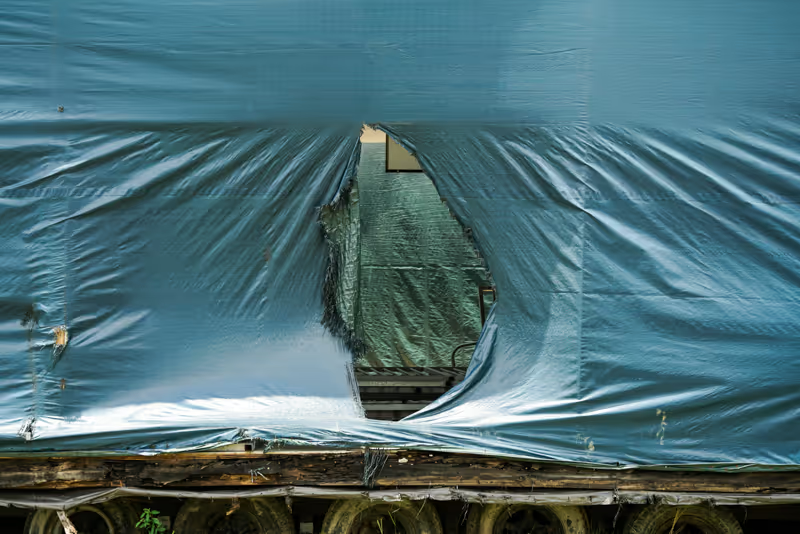
Leah Dyjak’s work combines photography, performance, labor, and video to explore how generations of human use affect the ecologies of place. Their current research is the disappearing lands in coastal and riparian Southern Louisiana, with a specific focus on infrastructure failure and the attempted control of the Mississippi River. Dyjak's photographs attempt to unveil the absurdity of a white supremacist culture’s continued reliance on outdated technologies and ways of thinking—sandbags, small-scale physical models, myopic protection of private interest —to provide a remedy for current environmental collapse. These site-specific installations and images often push the edges of perception by manipulating surfaces in either pictorial or physical space. Their work challenges perception of material and ideological boundaries, and attempts to chart matter in-flux.
Leah Dyjak received their BFA from Massachusetts College of Art and Design in 2006 and their MFA from the University of Texas at Austin in 2015. Dyjak’s work has been exhibited across the country at places such as the Houston Center of Photography, Blue Star Contemporary in San Antonio, and The Front Gallery in New Orleans. Their work is in multiple private collections and has been acquired by the Archive of Documentary Arts at Duke University. They are a past Djerassi Resident Artist Program and the Anderson Ranch. Recent publications include the Architectural Review, London, and the Leonardo Journal of Art and Science, MIT Press. Their work is represented by the Schoolhouse Gallery in Provincetown Massachusetts.
Leah Dyjak's residency at NARS is made possible by Wheaton College Massachusetts.
